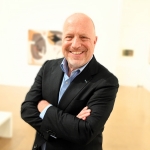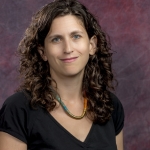
Shannon Ford
"I'm not aware of too many things
I know what I know, if you know what I mean"
With this refrain, Edie Brickell and the New Bohemians began the song “What I Am,” an anthem for simplicity, honesty, and common sense that has helped me in both my personal and professional life since I was a teen. (And yes, I know I am dating myself, and I am happy to own my middle age.)
As a staff member of the Tennessee Arts Commission, I’ve assisted people from rural places with packaging their hopes, dreams, and aspirations into proposals that anticipate skeptical questions and outline the community benefits to be achieved. It’s my job as a grants administrator and steward of public dollars to think how to economize and get the largest return from small investments, since our grants often represent a fraction of the funds raised for any given constituent’s project or operational budget. What makes my job rewarding is that I work for a state full of incredibly talented artists and administrators who continually innovate and show me how to squeeze grant dollars for every ounce of public value possible.
My job has also afforded me the privilege of speaking to teachers, public officials, and community boosters who believe that the arts are good for students, seniors, downtowns, tourism, as well as plenty of other groups and initiatives. However, sometimes they don’t know what to say or do to persuade movers, shakers, and/or non-believers. In particular, they express frustration that the arts are kept on the fringes of discussions about moving their communities strategically forward, or that the arts are perceived as expendable amenities, rather than as essential forces of positive change.
I’m not aware of too many magic bullets for incorporating the arts into rural economic development, but I know to look for six characteristics from constituents who’ve been successful.
1) Clarity of Goals – A plan is not a plan without an end in mind. If you want to do something, then be clear about the intended effects it will have on your community. A vehicle for reaching your community goals could be opening an arts center, or organizing a festival, or starting a gallery crawl, but those activities won’t have short-term or long-term effects without an expressed purpose. So your goals need to be clear, logically related to the means for achieving them, and attainable. Be very aware that if you are pitching your project or program as a component of economic development, then one of your long-term goals must be to generate revenue. Whatever form it takes – income for local artists, new business for the hospitality industry, a bump in the county tax rolls – it is important to show how economic benefits will accrue to the community at large.
Read More
























